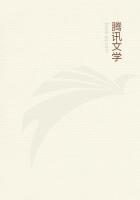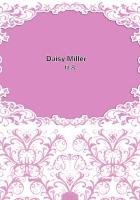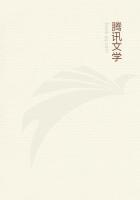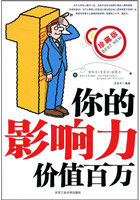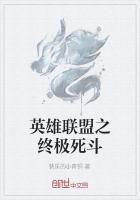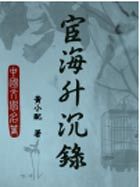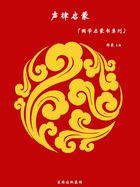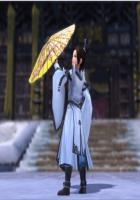I.
COUSIN JOHN TO COUSIN ALFRED.
LONDON, 18--
"My dear Alfred, Your last letters put me in pain.
This contempt of existence, this listless disdain Of your own life,--its joys and its duties,--the deuce Take my wits if they find for it half an excuse!
I wish that some Frenchman would shoot off your leg, And compel you to stump through the world on a peg.
I wish that you had, like myself (more's the pity!), To sit seven hours on this cursed committee.
I wish that you knew, sir, how salt is the bread Of another--(what is it that Dante has said?)
And the trouble of other men's stairs. In a word, I wish fate had some real affliction conferr'd On your whimsical self, that, at least, you had cause For neglecting life's duties, and damning its laws!
This pressure against all the purpose of life, This self-ebullition, and ferment, and strife, Betoken'd, I grant that it may be in truth, The richness and strength of the new wine of youth.
But if, when the wine should have mellow'd with time, Being bottled and binn'd, to a flavor sublime, It retains the same acrid, incongruous taste, Why, the sooner to throw it away that we haste The better, I take it. And this vice of snarling, Self-love's little lapdog, the overfed darling Of a hypochondriacal fancy appears, To my thinking, at least, in a man of your years, At the midnoon of manhood with plenty to do, And every incentive for doing it too, With the duties of life just sufficiently pressing For prayer, and of joys more than most men for blessing;
With a pretty young wife, and a pretty full purse, Like poltroonery, puerile truly, or worse!
I wish I could get you at least to agree To take life as it is, and consider with me, If it be not all smiles, that it is not all sneers;
It admits honest laughter, and needs honest tears.
Do you think none have known but yourself all the pain Of hopes that retreat, and regrets that remain?
And all the wide distance fate fixes, no doubt, 'Twixt the life that's within, and the life that's without?
What one of us finds the world just as he likes?
Or gets what he wants when he wants it? Or strikes Without missing the thing that he strikes at the first?
Or walks without stumbling? Or quenches his thirst At one draught? Bah! I tell you! I, bachelor John, Have had griefs of my own. But what then? I push on All the faster perchance that I yet feel the pain Of my last fall, albeit I may stumble again.
God means every man to be happy, be sure.
He sends us no sorrows that have not some cure.
Our duty down here is to do, not to know.
Live as though life were earnest, and life will be so.
Let each moment, like Time's last ambassador, come:
It will wait to deliver its message; and some Sort of answer it merits. It is not the deed A man does, but the way that he does it, should plead For the man's compensation in doing it.
"Here, My next neighbor's a man with twelve thousand a year, Who deems that life has not a pastime more pleasant Than to follow a fox, or to slaughter a pheasant.
Yet this fellow goes through a contested election, Lives in London, and sits, like the soul of dejection, All the day through upon a committee, and late To the last, every night, through the dreary debate, As though he were getting each speaker by heart, Though amongst them he never presumes to take part.
One asks himself why, without murmur or question, He foregoes all his tastes, and destroys his digestion, For a labor of which the result seems so small.
'The man is ambitious,' you say. Not at all.
He has just sense enough to be fully aware That he never can hope to be Premier, or share The renown of a Tully;--or even to hold A subordinate office. He is not so bold As to fancy the House for ten minutes would bear With patience his modest opinions to hear.
'But he wants something!'
"What! with twelve thousand a year?
What could Government give him would be half so dear To his heart as a walk with a dog and a gun Through his own pheasant woods, or a capital run?
'No; but vanity fills out the emptiest brain;
The man would be more than his neighbor, 'tis plain;
And the drudgery drearily gone through in town Is more than repaid by provincial renown.
Enough if some Marchioness, lively and loose, Shall have eyed him with passing complaisance; the goose, If the Fashion to him open one of its doors, As proud as a sultan returns to his boors.'
Wrong again! if you think so, "For, primo; my friend Is the head of a family known from one end Of his shire to the other as the oldest; and therefore He despises fine lords and fine ladies. HE care for A peerage? no truly! Secondo; he rarely Or never goes out: dines at Bellamy's sparely, And abhors what you call the gay world.
"Then, I ask, What inspires, and consoles, such a self-imposed task As the life of this man,--but the sense of its duty?
And I swear that the eyes of the haughtiest beauty Have never inspired in my soul that intense, Reverential, and loving, and absolute sense Of heart-felt admiration I feel for this man, As I see him beside me;--there, wearing the wan London daylight away, on his humdrum committee;
So unconscious of all that awakens my pity, And wonder--and worship, I might say?
"To me There seems something nobler than genius to be In that dull patient labor no genius relieves, That absence of all joy which yet never grieves;
The humility of it! the grandeur withal!
The sublimity of it! And yet, should you call The man's own very slow apprehension to this, He would ask, with a stare, what sublimity is!
His work is the duty to which he was born;
He accepts it, without ostentation or scorn:
And this man is no uncommon type (I thank Heaven!)
Of this land's common men. In all other lands, even The type's self is wanting. Perchance, 'tis the reason That Government oscillates ever 'twixt treason And tyranny elsewhere.
"I wander away Too far, though, from what I was wishing to say.
You, for instance, read Plato. You know that the soul Is immortal; and put this in rhyme, on the whole, Very well, with sublime illustration. Man's heart Is a mystery, doubtless. You trace it in art:--

